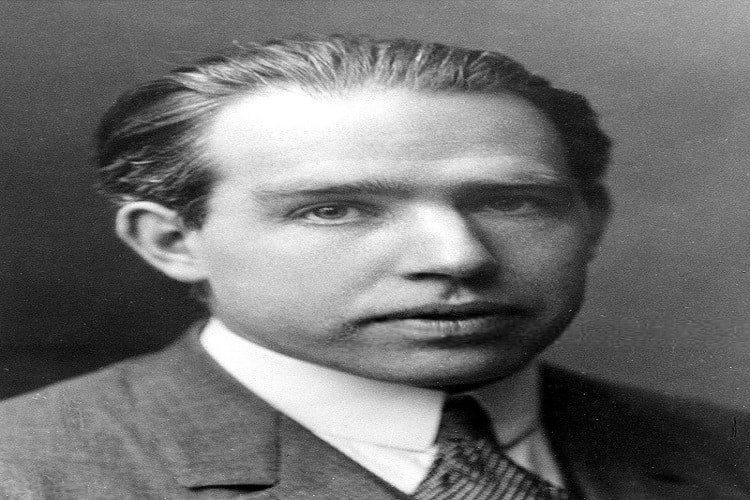Niels Bohr: Architect of the Atomic Age

Niels Bohr (7 October 1885 – 18 November 1962) was a Danish physicist. In 1922, Niels Bohr was awarded the Nobel Prize for his fundamental contributions to understanding atomic structure and quantum mechanics.
Life and Career
Niels Bohr was born on 7 October 1885, in Copenhagen, Denmark. Niels Bohr earned his Ph.D. in physics from the University of Copenhagen in 1911. He later conducted postdoctoral research with J.J. Thomson in England and Ernest Rutherford in New Zealand. Bohr is best known for his model of the atom, known as the Bohr model, which introduced the idea of quantized energy levels within an atom and explained the spectral lines of hydrogen.
He played a pivotal role in the development of quantum mechanics and quantum theory, working alongside other prominent physicists such as Werner Heisenberg, Wolfgang Pauli, and Max Born. Bohr established the Niels Bohr Institute in Copenhagen, which became a prominent center for research in theoretical and experimental physics. Niels Bohr passed away on 18 November 1962, in Copenhagen, Denmark.
Award and Legacy
Niels Bohr was awarded the Nobel Prize in Physics in 1922 for his fundamental contributions to understanding atomic structure and quantum mechanics. Niels Bohr’s work in quantum mechanics and atomic theory laid the foundation for modern atomic and nuclear physics. His model of the atom provided key insights into the behavior of electrons within atoms.
The Bohr model served as a stepping stone to more advanced models of atomic structure, such as the quantum mechanical model developed by Schrödinger and Heisenberg. The Niels Bohr Institute in Copenhagen continues to be a leading institution in the field of physics and honors his legacy. Bohr’s work significantly influenced the development of the atomic bomb during World War II, and he was an advocate for international cooperation in controlling nuclear weapons during the post-war period.
Observer Voice is the one stop site for National, International news, Sports, Editor’s Choice, Art/culture contents, Quotes and much more. We also cover historical contents. Historical contents includes World History, Indian History, and what happened today. The website also covers Entertainment across the India and World.
Follow Us on Twitter, Instagram, Facebook, & LinkedIn

